第32章
He sets before him, as he grows older, all the considerations and reasons he can devise, to make him apprehend the advantage of improvement and literature. He does his utmost to make his progress easy, and to remove all impediments. He smooths the path by which he is to proceed, and endeavours to root out all its thorns. He exerts his eloquence to inspire his pupil with a love for the studies in which he is engaged. He opens to him the beauties and genius of the authors he reads, and endeavours to proceed with him hand in hand, and step by step. He persuades, he exhorts, and occasionally he reproves. He awakens in him the love of excellence, the fear of disgrace, and an ambition to accomplish that which "the excellent of the earth" accomplished before him.
At a certain period the young man is delivered into his own hands, and becomes an instructor to himself. And, if he is blessed with an ingenuous disposition, he will enter on his task with an earnest desire and a devoted spirit. No person of a sober and enlarged mind can for a moment delude himself into the opinion that, when he is delivered into his own hands, his education is ended. In a sense to which no one is a stranger, the education of man and his life terminate together. We should at no period of our existence be backward to receive information, and should at all times preserve our minds open to conviction.
We should through every day of our lives seek to add to the stores of our knowledge and refinement. But, independently of this more extended sense of the word, a great portion of the education of the young man is left to the direction of the man himself. The epoch of entire liberty is a dangerous period, and calls upon him for all his discretion, that he may not make an ill use of that, which is in itself perhaps the first of sublunary blessings. The season of puberty also, and all the excitements from this source, "that flesh is heir to," demand the utmost vigilance and the strictest restraint. In a word, if we would counteract the innate rebelliousness of man, that indocility of mind which is at all times at hand to plunge us into folly, we must never slumber at our post, but govern ourselves with steady severity, and by the dictates of an enlightened understanding. We must be like a skilful pilot in a perilous sea, and be thoroughly aware of all the rocks and quicksands, and the multiplied and hourly dangers that beset our navigation.
In this Essay I have treated of nothing more than the inherent restiveness and indocility of man, which accompany him at least through all the earlier sections and divisions of his life. I have not treated of those temptations calculated to lead him into a thousand excesses and miseries, which originate in our lower nature, and are connected with what we call the passion of love.
Nor have I entered upon the still more copious chapter, of the incentives and provocations which are administered to us by those wants which at all times beset us as living creatures, and by the unequal distribution of property generally in civil society. I have not considered those attributes of man which may serve indifferently for good or for ill, as he may happen to be or not to be the subject of those fiercer excitements, that will oft times corrupt the most ingenuous nature, and have a tendency to inspire into us subtle schemes and a deep contrivance. I have confined myself to the consideration of man, as yet untamed to the modes of civilised community, and unbroken to the steps which are not only prescribed by the interests of our social existence, but which are even in some degree indispensible to the improvement and welfare of the individual. I have considered him, not as he is often acted upon by causes and motives which seem almost to compel him to vice, but merely as he is restless, and impatient, and disdainful both of the control of others, and the shackles of system.
For the same reason I have not taken notice of another species of irrationality, and which seems to answer more exactly to the Arabic notion of the fomes peccati, the black drop of blood at the bottom of the heart. We act from motives apprehended by the judgment; but we do not stop at them. Once set in motion, it will not seldom happen that we proceed beyond our original mark.
We are like Othello in the play:
Our blood begins our safer guides to rule;
And passion, having our best judgment quelled, Assays to lead the way.
This is the explanation of the greatest enormities that have been perpetrated by man, and the inhuman deeds of Nero and Caligula.
We proceed from bad to worse. The reins of our discretion drop from our hands. It fortunately happens however, that we do not in the majority of cases, like Phaeton in the fable, set the world on fire; but that, with ordinary men, the fiercest excesses of passion extend to no greater distance than can be reached by the sound of their voice.